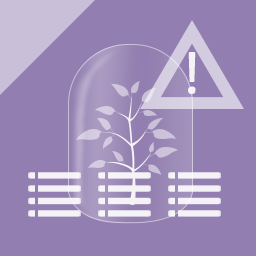The overall objectives of the BTSF Training Programme/Course on Leveraging remote sensing for plant health are:
- Better understanding of how remote sensing technologies could support Plant Health management
- How to develop or procure remote sensing projects fit for their own needs
The course addresses the following topics:
- Discussing the challenges faced in plant health management, and exploring how remote sensing can help face them.
- Different remote sensing platforms and the mechanisms for data processing and use..
- Practical examples already used by Member States
- Working with data - the participants will get to navigate and query remote sensing data of vegetation in the area nearby the training venue
- Demonstration with the drones in the olive grove at the CIHEAM campus
- Presentation of XylAppEU and JRC App prototype
- Getting the right data for the right needs
This Training Programme has been designed for the profiles and positions described below. Please verify compliance with the selection criteria before submitting or validating applications.
The inspection services of national, regional or local authorities competent for the planning and execution of the pest surveys (e.g. National Plant Protection Organisations, Forestry services) and the risk managers that are involved in decisions related to the planning of surveillance activities at national, regional or local levels, including using remote sensing or other novel technologies.
Participant must have at least of 1 year of professional experience as:
- a phytosanitary inspector responsible for planning and conducting pest surveys, including using remote sensing or other novel technologies;
- or a risk manager responsible for planning surveillance activities, including using remote sensing or other novel technologies
| Session | Start Date | End Date | City | Country |
|---|---|---|---|---|
| 1 | 22/04/2024 | 25/04/2024 | Bari | Italy |
The overall objectives of the BTSF Training Programme/Course on EFSA's toolkit for plant health surveillance using statistically risk-based surveys are:
- to introduce the EFSA toolkit and the methodology supporting the planning of surveillance activities
- to present the latest developments such as the Risk-based Pest Survey Tool (RiPEST). The training will illustrate all the practical activities using this new tool. RiPEST is a new expert system adapted to the plant health context.
This toolkit has been developed to support Member States and third ountries in planning and execution of their surveillance activities.
The course addresses the following topics:
- To assess the effectiveness of participating countries’ protocols to deliver a harmonised and cross-border response to a serious multi-country plant health incident.
- To assess the effectiveness of the collaborative working arrangements both within and between participating countries and relevant EU bodies.
- To assess the degree to which there is a common and consistent understanding and application of key definitions and concepts, and of the existing alert systems and communication tools.
- To identify learning that can be shared and used to enhance participant’s response capability, EU protocols and ways of working so as to inform future EU training and exercising initiatives.
This Training Programme has been designed for the profiles and positions described below. Please verify compliance with the selection criteria before submitting or validating applications.
- Being a part of inspection services of national, regional or local authorities competent for the planning and execution of the pest surveys such as National Plant Protection Organisations, Forestry services or risk managers involved in decisions related to the planning of surveillance activities and managing the contingency plans for crisis preparedness in case of outbreaks of regulated plant pests;
- At least 3 years of professional experience in specific professional positions such as a phytosanitary inspector responsible for planning and conducting pest surveys, or a risk manager responsible for planning surveillance activities and managing contingency plans for crisis preparedness for outbreaks of regulated plant pests and be fluent in English;
- Experience in planning and execution of pest surveys in National/Regional/Local Plant Protection Organisation and in risk management of surveillance activities and implementation of contingency plans for crisis preparedness for regulated pest outbreaks.
| Session | Start Date | End Date | City | Country |
|---|---|---|---|---|
| 1 | 03/10/2023 | 05/10/2023 | Valencia | Spain |
| 2 | 16/01/2024 | 18/01/2024 | Parma | Italy |

The overall objectives of the BTSF Training Programme on Plant disease outbreaks-contingency planning for priority pests are:
- Provide for a common understanding of the current state of play of suitable approaches to address outbreaks of priority pests in the EU territory
- Identify tools, procedures and reaction measures (generic and specific)
- Compare key elements of contingency plans and other preparedness elements elaborated by their respective MS
- Building capacity at national level for the planning and implementation of plant health contingency actions
- Developing specific skills, through training, simulation and the exchange of experience and best practices
- Ensuring the new skills, knowledge and best practices learned are disseminated effectively within MS
The course addresses the following topics:
- Introduction to contingency plans of plant disease outbreaks in EU territory for priority pests.
- EU legal framework on contingency planning.
- Contingency planning: roles and responsibilities, chain of command.
- Simulation exercise and other preparedness activities.
- Action plans for priority pests.
This Training Programme has been designed for the profiles and positions described below. Please verify compliance with the selection criteria before submitting or validating applications.
- All official staff of countries invited involved in development and implementation of plant disease outbreak contingency plans.
- All staff from national, regional, and local competent authorities directly involved in carrying out inspections and enforcing controls of plant health, including staff from laboratories.
- Staff of competent authorities involved in controls of imported products.
- Proficient in the English language
| Session | Start Date | End Date | City | Country |
|---|---|---|---|---|
| 1 | 31/01/2023 | 03/02/2023 | Madrid | Spain |
| 2 | 21/03/2023 | 24/03/2023 | Ljubljana | Slovenia |
| 3 | 18/04/2023 | 21/04/2023 | Bratislava | Slovakia |
| 4 | 23/05/2023 | 26/05/2023 | Tallinn | Estonia |
| 5 | 13/06/2023 | 16/06/2023 | Lisbon | Portugal |
| 6 | 26/09/2023 | 29/09/2023 | Ljubljana | Slovenia |
| 7 | 17/10/2023 | 20/10/2023 | Bratislava | Slovakia |
| 8 | 14/11/2023 | 17/11/2023 | Tallinn | Estonia |
| 9 | 11/12/2023 | 14/12/2023 | Athens | Greece |
| 10 | 23/01/2024 | 26/01/2024 | Athens | Greece |
| 11 | 27/02/2024 | 01/03/2024 | Madrid | Spain |
The overall objectives of the BTSF Training Programme/Course on Inter-sectoral simulation exercises on crisis management coordination in Plant Health are to prepare, hold and evaluate inter-sectorial table top simulation exercises on outbreak coordination and crisis response involving agri-food chain authorities, and where needed, public health authorities, as well as crisis coordinators:
- improving preparedness and response planning for crisis situations through testing procedures in place at national (contingency plans) and EU level (e.g. the crisis general plan);
- ensuring coherence, interoperability and coordination between the local, national and EU level;
- ensuring interaction between Member States and with international partners concerned by using the appropriate channels;
- ensuring coordination between competent authorities and other stakeholders at national level;
- guaranteeing coordination of risk communication at local, national and EU level;
- improving preparedness to communication and decision-making challenges in crisis situations, such as e.g. deciding when to communicate, how to handle uncertainty when communicating and how to balance scientific assessments vs political evaluation, trade, economic impact, consumer confidence and public health.
The course addresses the following topics:
- 01. Exercise Introduction : Background, Aims & Objectives
- 02. Crisis management coordination and response in the plant health sector: institutional and legal framework
- 03. General and specific contingency plans
- 04. IMSOC/EUROPHYT and multi-country outbreaks
- 05. Experience with Bursaphelenchus xylophilus outbreak
- Simulation Exercise Injects
- 08. Recap on the simulation exercise (hot wash and elements of SimEx Report)
- 09. Exercise debrief: Lessons identified, actions required to ensure lessons learned (Improvement Plan)
This Training Programme has been designed for the profiles and positions described below. Please verify compliance with the selection criteria before submitting or validating applications.
The training is addressed to officials from competent authorities involved in crisis preparedness and management (preferably at central and/or regional level) in the chosen field coming from Member States only, subject to Commission approval and who have committed to disseminating training material within their organisations.
| Session | Start Date | End Date | City | Country | |
|---|---|---|---|---|---|
| 1 | 11/10/2022 | 13/10/2022 | Brussels | Belgium | |
| CANCELLED | CANCELLED | ||||
| 3 | CANCELLED | CANCELLED | |||
| 4 | 28/05/2024 | 30/05/2024 | Warsaw | Poland | |
| 5 | 01/07/2024 | 03/07/2024 | Bratislava | Slovakia | |
| 6 | 28/10/2024 | 30/10/2024 | Rome | Italy |
The overall objectives of the BTSF Training Programme/Course on Developing skills and sharing best practices in preparation of contingency plans for priority pests are:
- To provide for a common understanding of the current state of play of suitable tools and approaches to address outbreaks of priority pests in the EU territory (application of key definitions and concepts);
- To assess and identify generic (and specific) eradication and containment measures;
- To give the opportunity to trainees to compare key elements of contingency plans and other preparedness elements elaborated by their respective Member States in order to identify and share best practices (e.g existing alert systems and communication tools);
- To share best practices of the structure of contingency plans and response to crisis situations in food safety and animal health sectors.
The course addresses the following topics:
- Regulatory Framework (International and EU) for Contingency planning and pest eradication
- Generic and pest specific contingency plan, its structure, required information
- Roles and responsibilities of stakeholders and required resources (e.g. for surveillance, eradication)
- Action plan, simulation exercises for different priority pests
- Eradication vs containment measures
- Notification and public awareness
This Training Programme has been designed for Official staff of EU Member State authorities with both direct and indirect responsibilities to plant health. Participants would be expected to cascade the knowledge gathered during these specific training courses.
| Session | Start Date | End Date | City | Country |
|---|---|---|---|---|
| 1 | 29/11/2021 | 02/12/2021 | BCN | SPAIN |
| 2 | 29/03/2022 | 01/04/2022 | VC | CANCELLED |
| 3 | 20/06/2022 | 24/06/2022 | - | ITALY |
